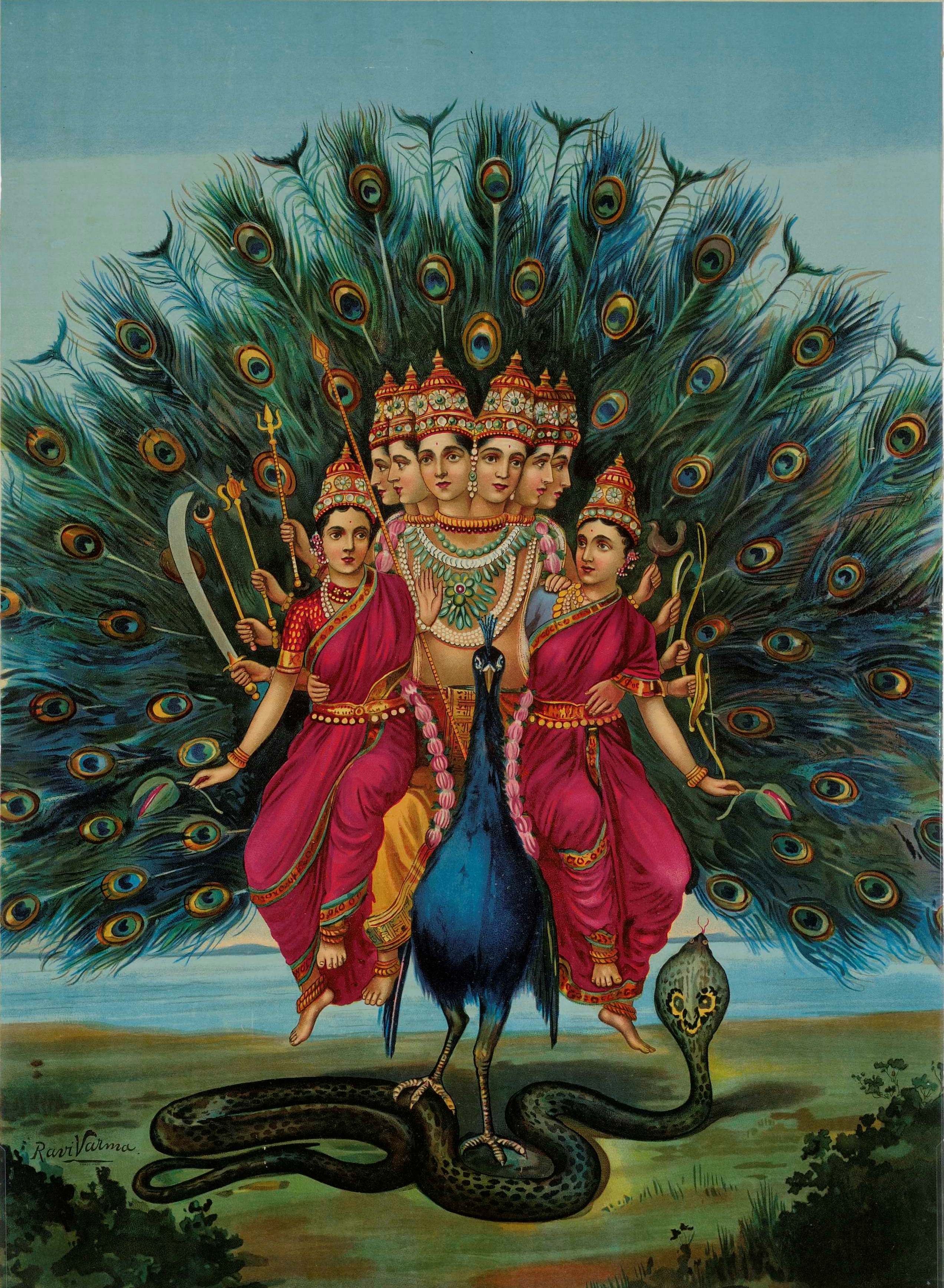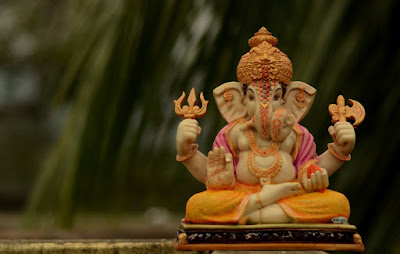Topic Research: Ganesha's Family
Ganesha and Kartikeya
Story 1 - Ganesha's Birth
The birth of Ganesha was something that I mentioned in my last post about the class project. The story that I used there was lifted from the Wikipedia page on Ganesha. However there is a different telling of the story here1. In this version his parents Shiva and Parvati are referred to as Siwa and Uma respectively. Additionally the events that lead to Ganesha losing his head are vastly different. In this retelling, the loss of his head was due to the hubris of Uwa refusing to heed the warnings of Sani, rather than a raging Shiva. Alternatively, the Wikipedia article's story is also referenced in this video2. Regardless this is story that could be altered and retold to have many different meanings as it seems it has already been done. On the other hand, perhaps a story could be told to unify the two differences.Story 2 - Ganesha's Brother
For the story revolving around Ganesha's brother, the race described in this video2 could be used for the theme of different people having different frames of reference. In the story the two brothers, Ganesha and Kartikeya are asked to race around the world three times, the winner receiving a mango (not really worth the effort in my opinion). Kartikeya immediately jumps on his peacock and starts making laps around the planet. (Here is a picture of his peacock.)Alternatively the "Story of the birth of Kártikeya" can be found here3. And more information can be found on the Wikipedia page4.
Story 3 - Ganesha's Parents
For this story I plan to analyze how Shiva and Parvati's ideas about family. Currently the stories I have read are conflicting on whether Shiva desired to have children or not. Particularly, in the birth of Kártikeya is seems that it was primarily because a son was requested, rather than desired by Shiva.Here is a brief snippet about a perceived relationship between Shiva and Parvati5.
Parvati and Shiva are often symbolized by a yoni and a linga respectively. In ancient literature, yoni means womb and place of gestation, the yoni-linga metaphor represents "origin, source or regenerative power". The linga-yoni icon is widespread, found in Shaivite Hindu temples of South Asia and Southeast Asia. Often called Shivalinga, it almost always has both linga and the yoni.[8] The icon represents the interdependence and union of feminine and masculine energies in recreation and regeneration of all life.Backup Story Sources
Ganesha: The Remover of All ObstaclesGanesha Goes to Lunch
Bibliography
Ganesha's BirthGanesha Family Video
Birth of Kartikeya
Kartikeya, Wikipedia
Kartikeya, Image
Parvati, Wikipedia



Comments
Post a Comment